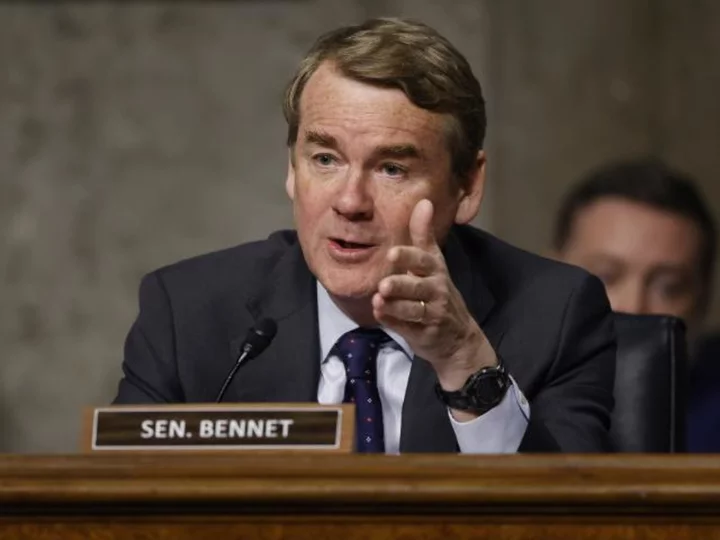Days after OpenAI CEO Sam Altman testified in front of Congress and proposed creating a new federal agency to regulate artificial intelligence, a US senator has introduced a bill to do just that.
On Thursday, Colorado Democratic Sen. Michael Bennet unveiled an updated version of legislation he introduced last year that would establish a Federal Digital Platform Commission.
The updated bill, which was reviewed by CNN, makes numerous changes to more explicitly cover AI products, including by amending the definition of a digital platform to include companies that offer "content primarily generated by algorithmic processes."
"There's no reason that the biggest tech companies on Earth should face less regulation than Colorado's small businesses -- especially as we see technology corrode our democracy and harm our kids' mental health with virtually no oversight," Bennet said in a statement. "Technology is moving quicker than Congress could ever hope to keep up with. We need an expert federal agency that can stand up for the American people and ensure AI tools and digital platforms operate in the public interest."
The revised bill expands on the definition of an algorithmic process, clarifying that the proposed commission would have jurisdiction over the use of personal data to generate content or to make a decision — two key applications associated with generative AI, the technology behind popular tools such as OpenAI's viral chatbot, ChatGPT.
And for the most significant platforms — companies the bill calls "systemically important" — the bill would create requirements for algorithmic audits and public risk assessments of the harms their tools could cause.
The bill retains existing language mandating that the commission ensure platform algorithms are "fair, transparent, and safe." And under the bill, the commission would continue to have broad oversight authority over social media sites, search engines and other online platforms.
But the added emphasis on AI highlights how Congress is rapidly gearing up for policymaking on a cutting-edge technology it is scrambling to understand. The debate over whether the US government should establish a separate federal agency to police AI tools may become a significant focus of those efforts following Altman's testimony this week.
Altman suggested in a Senate hearing on Tuesday that such an agency could restrict how AI is developed through licenses or credentialing for AI companies. Some lawmakers appeared receptive to the idea, with Louisiana Republican Sen. John Kennedy even asking Altman whether he would be open to serving as its chair.
"I love my current job," Altman demurred, to laughter from the audience.
Thursday's bill does not explicitly provide for such a licensing program, though it directs the would-be commission to design rules appropriate for overseeing the industry, according to a Bennet aide. Bennet's office did not consult with OpenAI on either the original bill or Thursday's revised version.
But even as some lawmakers have embraced the concept of a specialized regulator for internet companies — which could conflict with existing cops on the beat at agencies including the Justice Department and the Federal Trade Commission — others have warned of the potential risks of creating a whole new bureaucracy.
Gary Marcus, a New York University professor and self-described critic of AI "hype," told lawmakers at Tuesday's hearing that a separate agency could fall victim to "regulatory capture," a term that describes when industries gain dominating influence over the government agencies created to hold them accountable.
Connecticut Democratic Sen. Richard Blumenthal, a former state attorney general who has prosecuted consumer protection cases, said no agency can be effective without proper support.
"I've been doing this stuff for a while," Blumenthal said. "You can create 10 new agencies, but if you don't give them the resources — and I'm not just talking about dollars, I'm talking about scientific expertise — [industry] will run circles around them."

